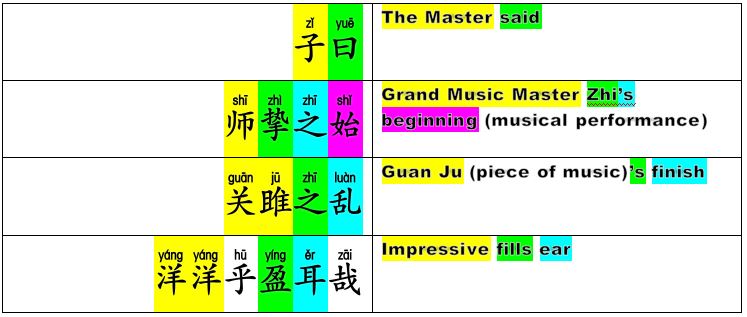Analects 9.3
Original Text:
子曰麻冕礼也今也纯俭吾从众拜下礼也今拜乎上泰也虽违众吾从下
Translation:

Other Translations:
The Master said, “A ceremonial cap made of linen is prescribed by the rites, but these days people use silk. This is frugal, and I follow the majority. To bow before ascending the stairs is what is prescribed by the rites, but these days people bow after ascending. This is arrogant, and—though it goes against the majority—I continue to bow before ascending.”
Confucius, & Slingerland, E. (2003). Analects: With selections from traditional commentaries. Hackett Publishing.
The Master said, Ritual calls for caps of hemp, though nowadays silk is used, because it is more economical. I go along with others in this.
Ritual calls for one to bow at the foot of the stairs. Nowadays people bow at the top of the stairs, but this is presumptuous. Although it means differing from others, I perform the bow at the foot of the stairs.
Confucius, & Watson, B. (2007). The Analects of Confucius. Columbia University Press.










